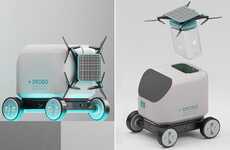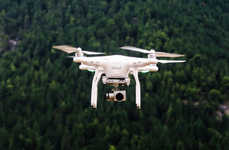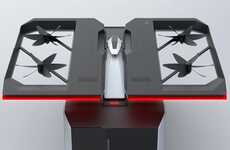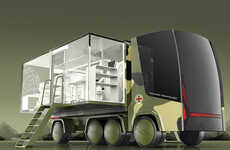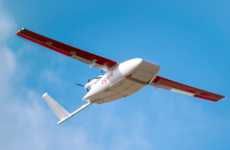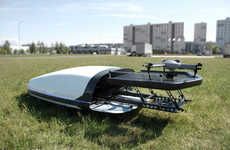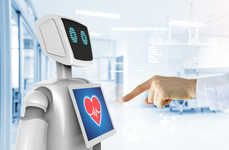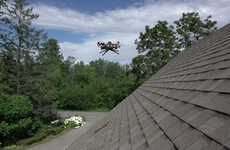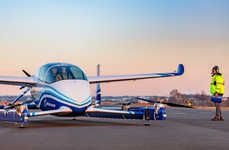
According to Leo A Daly, Drones Will Benefit Hospitals in Disaster Areas
Kalin Ned — June 19, 2019 — Art & Design
Thanks to new technological innovations, hospitals in disaster areas can be equipped to better deliver care to patients in turbulent times. A drone-favoring concept has been put forth by Miami-based architecture and engineering office Leo A Daly.
The proposal concerns instances when roads are made inaccessible due to natural disasters such as hurricanes. These occurrences often make it quite difficult or even impossible for staff, family and suppliers to reach patients. As a result, Leo A Daly shares an idea that will allow resources to be taken directly to them.
The firm envisions hospitals in disaster areas to have drone ports on every window that will allow the tech to land and bring the resources to the patient. Other disaster-addressing features include a system of rainwater collection and photovoltaic panels for solar power.
The proposal concerns instances when roads are made inaccessible due to natural disasters such as hurricanes. These occurrences often make it quite difficult or even impossible for staff, family and suppliers to reach patients. As a result, Leo A Daly shares an idea that will allow resources to be taken directly to them.
The firm envisions hospitals in disaster areas to have drone ports on every window that will allow the tech to land and bring the resources to the patient. Other disaster-addressing features include a system of rainwater collection and photovoltaic panels for solar power.
Trend Themes
1. Disaster-response Drones - Opportunity for drone technology to be utilized in disaster areas by equipping hospitals with drone ports to reach patients and deliver resources.
2. Smart Hospital Infrastructure - Leveraging technology solutions such as photovoltaic panels for solar power and rainwater collection to ensure hospitals in disaster areas functions efficiently.
3. Logistics Delivery by Drones - Use of drones to deliver medical supplies to remote areas or disaster areas where accessibility is difficult.
Industry Implications
1. Healthcare - Future of hospitals in disaster areas and potential advancement in technological innovation could revolutionize healthcare.
2. Transportation and Logistics - The use of drones for delivery and logistics in disaster areas and remote locations could revolutionize the logistics industry.
3. Renewable Energy - Opportunity to promote renewable energy through the use of photovoltaic panels for smart infrastructure for hospitals in disaster areas.
1.9
Score
Popularity
Activity
Freshness


